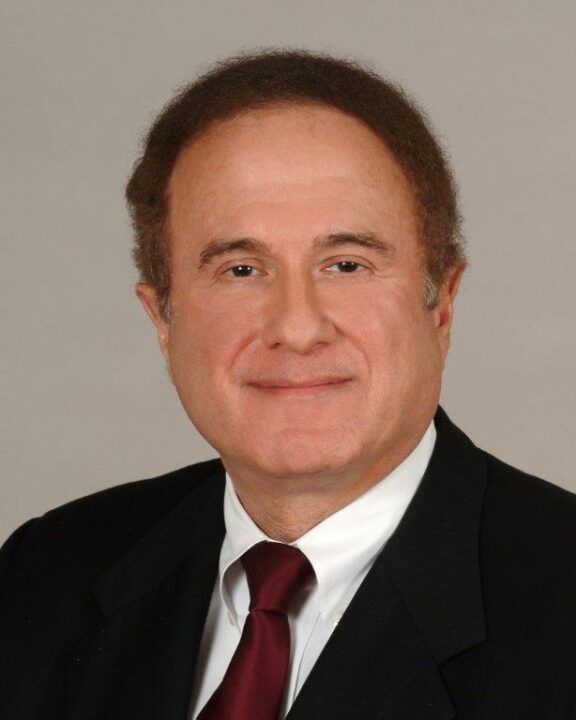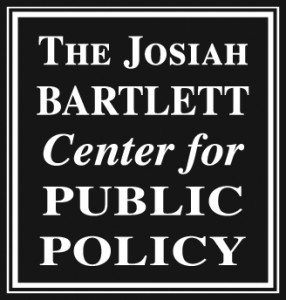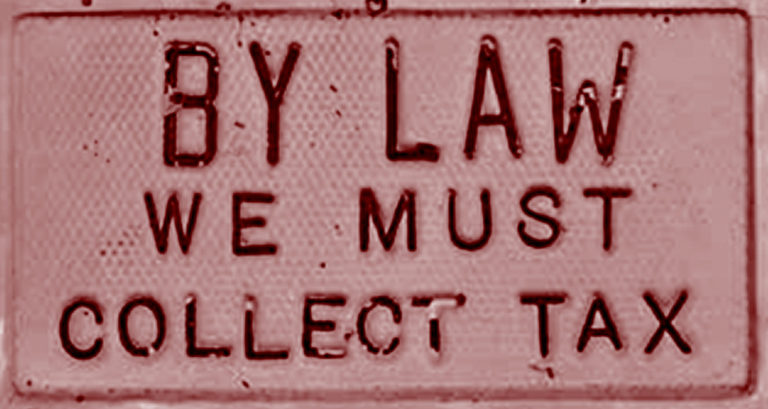Nashua Senator Cindy Rosenwald thinks that she and the Democrat party know how to raise your children and manage your money better than you do. Rosenwald sponsored a bill for mandatory COVID vaccines for school children, and voted to keep parents in the dark about what their children are learning in school.
sales tax
Destroying the NH Advantage – Commuter Rail
Commuter rail is another piece of the ‘urbanization’ puzzle that originated with the United Nations’ global goals, a.k.a. Agenda 21 (now called Agenda 2030) to get us out of our cars, in an effort to reduce ‘global warming’ or ‘climate change.’
FEAR SHOULD MAKE VOTING IMPERATIVE! NIGHTMARES SOMETIMES DO COME TRUE!
There is much to fear depending on the outcome of our elections in November, both at the federal and state level.
Norm Silber Announces Run for State Rep in Gilford & Meredith
Wednesday was the start of the filing period to run for state offices in New Hampshire. Although the General Election is not until November 3, if primary elections are required for any offices they will be held on September 8. A key issue this election cycle will be the level of taxation New Hampshire citizens … Read more
Lonely (for now) legislators push sales, income taxes
A bill to tax sales of electronics in New Hampshire made news this week, and the bemused media coverage it drew was justified. Yet New Hampshire Union Leader State House Bureau Chief Kevin Landrigan saw a different, and more important, angle.
Democrats Propose a NH Sales Tax – For the Children!
Governor Sununu was forced to veto a slew of bills in 2019 that would have increased or created taxes. In 2020, he’ll likely be made to do it again. Two democrats propose a NH Sales Tax of 4.3% in addition to all the other new taxes and tax increases that will inevitably reach the Governor’s … Read more
Inspector Volinsky Runs For Governor
Andru Volinsky, Executive Councilor in District 2, has announced his run for Governor, joining Democrat Senate Majority Leader Dan Feltes to create a primary. Volinsky has refused to take a pledge against broad-based taxes, such as an income tax or a sales tax. “I think if you take the pledge, you shut down honest conversation,” … Read more
Comrade Volinksy ‘Floats’ Broad-Based Tax Option
Councilor Comrade Volinsky, who’s been ‘contemplating’ a run for NH Governor, confirmed to WMUR-TV today that he would not sign the pledge promising no broad-based taxes in New Hampshire should he win the corner office in 2020.
Sales Tax in NH – A Constitutional & NH House take on S. Dakota vs Wayfair SCOTUS decision
Recently, the Supreme Court of the United States (SCOTUS) handed down an opinion in the South Dakota versus Wayfair (SD v Wayfair). The South Dakota Legislature had passed a law that enabled South Dakota to go after taxes on purchases citizens had made from Wayfair. The S. D. Supreme Court held that the law was unconstitutional, and it was appealed to SCOTUS. Previously, SCOTUS had held the opinion that no taxes could be collected if the retailer had no substantial physical presence in the State seeking the tax revenue.
Parallel to this an organization has grown up.
Keith Erf – candidate for NH State House, Hillsborough County 2 (Weare/Deering)
I’m Keith Erf, candidate for state representative in Weare and Deering. I’m running for State representative to champion limited government. I’ve lived in Weare for 37 years. My wife, Louisa, and I raised four children here where they attended Weare schools.
I started my business, KyTek, in 1991 developing automated systems for the publishing industry. As a small business owner and member of the Weare Finance Committee, I’ve seen firsthand how NH business taxes, property taxes and expanding government negatively impacts our communities. We need representation in Concord that fights for our best interests, limiting government and taxation so current and future generations can afford to live and work in our community.
As a member of the Weare Finance Committee, I look to find a taxpayer-friendly balance between the needs of the town and schools and the costs to our residents. From the vantage point of the Finance Committee I have learned that we need representation in Concord that will avoid legislation that places costs on Weare and Deering requiring us to increase our local property taxes.
Why New Hampshire’s ‘hurried’ Internet Sales Tax Solution Had to Die
The recent scramble to “do something” after the Wayfair decision said states could tax internet sales was big news.
When the New Hampshire House killed the ‘bipartisan’ draft language that was big news.
What should be even bigger news is that the language the committee used to draft the proposed legislation could hand some measure of “tax administration rulemaking” over to an out-of-state third party.
Bill Charges States Who Try To Tell New Hampshire Businesses To Collect Their Taxes
 If you are one of those 45 states that are not New Hampshire that may ask a business based here (with no presence there) to collect your sales taxes for you prepare to pay the price. Literally.
If you are one of those 45 states that are not New Hampshire that may ask a business based here (with no presence there) to collect your sales taxes for you prepare to pay the price. Literally.
For starters, any taxing jurisdiction, before they can approach a New Hampshire business and say, “I think you have sold something to one our residents, pay up,” that taxing jurisdiction will first have to register with the New Hampshire Attorney General and pay a fee.
Picking “Internet” Nits…

A legislative committee met to iron out a remedy to the Wayfair Decision. That Supreme Court ruling could require New Hampshire businesses to collect and remit taxes for other states. No one, regardless of party, seems to want that at least and until New Hampshire Democrats find a way to institute a tax they could then try to make other state’s collect.
We’re not there yet and hopefully never will be, but that’s not even why I’m writing this.
Senator Shaheen’s Selective Defense Of Small Business Owners
New Hampshire’s Congressional delegation is unified in its defense of the Granite State from efforts to make online purchases taxable. Their primary objection, and I’ll use Senator Shaheen as my whipping donkey for this, is the burden it puts on small business owners.
As a former small business owner, I know that most small businesses operate on small profit margins and struggle to keep overhead low. That’s especially true for small online retailers. It is unacceptable to impose major new administrative costs on small businesses while making it harder to compete with big-box retailers.
GrokTALK! Legislative Round Up
Max walks us through some legislation, including Poker, a bill to control abuses by child and family services, who voted for a 2.25% state sales tax, the Judiciary committee bailing on oversight over the judicial system, a tax on marriage to fund a domestic violence program, and the rhetoric on cutting expansions to the budget, … Read more
On Not being California…
 New Hampshire is not California. We are not California because with the exception of 2007-2010, we try to avoid letting Democrats run the entire state government. (We’re also not Massachusetts for that same reason.) And this is good, because while Massachusetts Governor Deval Patrick has now implemented “cost controls” for Healthcare providers in his state, guaranteeing(long term) less access, longer waits and poorer service, California is a bloody disaster.
New Hampshire is not California. We are not California because with the exception of 2007-2010, we try to avoid letting Democrats run the entire state government. (We’re also not Massachusetts for that same reason.) And this is good, because while Massachusetts Governor Deval Patrick has now implemented “cost controls” for Healthcare providers in his state, guaranteeing(long term) less access, longer waits and poorer service, California is a bloody disaster.
The tax and spend, unsustainable pension and benefits, land of environmental extortion, saw sales tax revenue drop 33.5% last month. While but one small part of the problem that is “California” all the problems can be linked directly to things that New Hampshire Democrats want you to experience right here in the Granite State.
About That “No Tax Pledge” Candidate Hassan…
 It’s a well regarded fact that Democrat Candidate Maggie “The Red” Hassan, early in her candidacy for Governor of New Hampshire, took a Pledge to veto any sales or Income tax. This is something of an election year tradition. Democrats who have been trying to raise old taxes or pass new taxes for years find the odds of achieving the states highest office against them if they don’t pay lip service to “The Pledge.”
It’s a well regarded fact that Democrat Candidate Maggie “The Red” Hassan, early in her candidacy for Governor of New Hampshire, took a Pledge to veto any sales or Income tax. This is something of an election year tradition. Democrats who have been trying to raise old taxes or pass new taxes for years find the odds of achieving the states highest office against them if they don’t pay lip service to “The Pledge.”
Governor Shaheen fell off the horse and eventually passed the state wide education funding tax. Governor Lynch signed the pledge then later signed off on RGGI, a regressive broad based tax that actually outsourced taxing power to an unelected out of state board. And now Maggie Hassan has stated repeatedly that she has taken the same pledge, but has she?
Granite State Fair Tax Spins And Spins And Spins
Mark Fernald is pimping for the misleadingly named Granite State Fair Tax Coalition (GSFTC). This is a group of tax and spend liberals (their fellow travelers and useful idiots) who are trying get an income tax.
To sell you on this Utopian elixir of piss, GSFTC argues that New Hampshire’s property taxes favor the rich, and most recently have sent out a pile of nonsense with some misleading graphs, through Fernald’s email list to make the sale. But as usual it is spun upside down and backwards and ignores one very unassailable fact. New Hampshire has one of the lowest overall tax burdens in the nation because it relies on property taxes. And the rich are not paying less for their share of State government.
 Government is a necessary (preferably limited) evil, laid out like a salad bar. There are all kinds of services your tax dollars pay for. Some of them are for “just in case kinds of things” like public safety. Then there are roads and schools and clerks and so on. And then there are unemployment, welfare, heating aid, and a host of social support services, and the cost of the bureaucracy itself.
Government is a necessary (preferably limited) evil, laid out like a salad bar. There are all kinds of services your tax dollars pay for. Some of them are for “just in case kinds of things” like public safety. Then there are roads and schools and clerks and so on. And then there are unemployment, welfare, heating aid, and a host of social support services, and the cost of the bureaucracy itself.
By law these services are made available to everyone equally based on need so the folks most likely to consume government services are lower income residents. Statistically, the less you earn, the more of the salad bar you are likely to need or eat from and the more trips you are likley to make in a given year. But no matter what you earn, or where you live, or how well you live, you still only get one plate–and you pay for that plate in the form of taxes.
The GSFTC would like you to believe that the rich are paying less for that plate. To perpetrate this deception they use "taxes paid as a percentage of income" to make their case. Their argument is that the rich only pay about 2% of their income as taxes while the poorer folks pay over 8% (Roughly), and that this is unfair. But is that really the case? Are the rich paying less money for a trip to the New and Improved State Government Salad Bar or is GSFTC just playing class warfare games?








